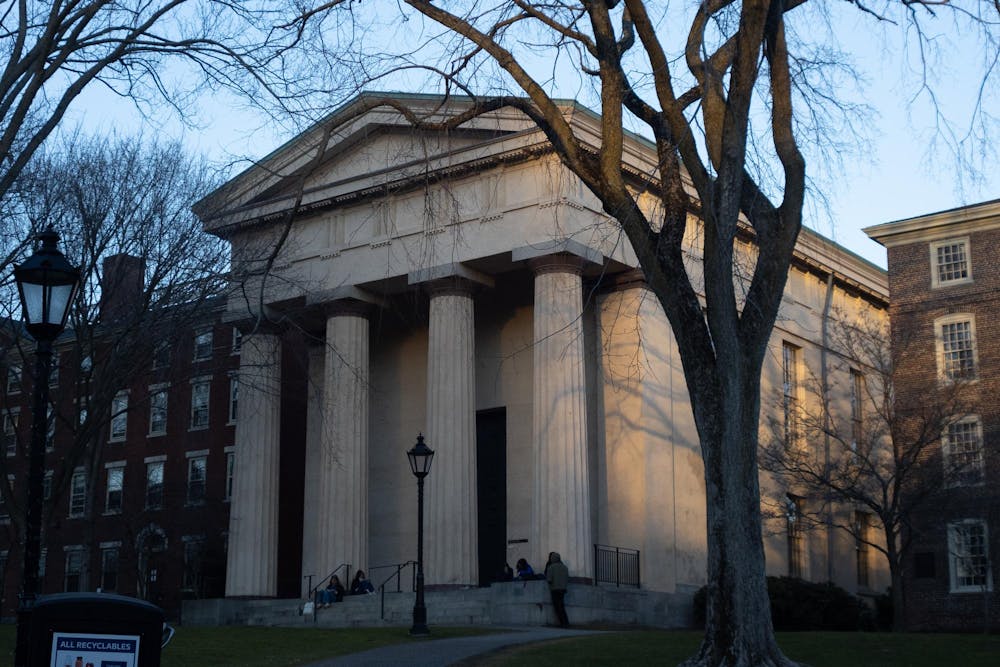The University will transfer 255 acres of its Bristol property to a land trust established by the Pokanoket Tribe by summer of 2026, according to a Nov. 15 press release.
The transfer is part of a 2017 agreement between the University and the Pokanoket tribe, which was reached after the tribe held an encampment on the property to demand the return of the land.
The 375-acre Mount Hope property in Bristol is the site of the University’s Haffenreffer Museum of Anthropology collections, currently being relocated to downtown Providence. Beyond the 255 acres which will be placed in the land trust, 120 acres will be sold to the town of Bristol for “preservation and conservation.”
While the transfer goes into effect immediately, the University will retain ownership of parcels being used for the museum and its collections, the barn and the outing center until the relocation of the Haffenreffer Museum collections is complete. The process is expected to be completed by the summer of 2026, according to the press release.
The deed of the transfer guarantees access to the “lands and waters” of the property to tribes with historical ties to the land.
According to Sachem Po Pummukoank Anogqs, Dancing Star, who also goes by Tracey Brown, the Pokanoket tribe will focus on the preservation of the land.
“We are the original stewards of this land. The Creator entrusted us with this land and we will do nothing less than what needs to be done in the best interest of it,” Sachem Dancing Star wrote in a statement shared with The Herald.
The land contains multiple sacred sites for the Pokanoket, including the sites where Metacom, also known as King Philip, held tribal council meetings and was killed in 1676.
The Pokanoket Tribe is led by Sagamore Po Wauipi Neimpaug, Winds of Thunder, who also goes by William Guy. He is the “tenth great-grandson of King Philip,” said Taino Palermo, the legal director of the Center for Indigenous Peoples Rights and counsel for the Pokanoket Tribe in negotiations with the University.
The University is the first Ivy League institution to return land back to local Native American tribes, Palermo said.
“For the first time in over 340 years we unlocked the gates to the property for ourselves and walked onto our land,” Sachem Dancing Star wrote. “That is significant. It is historical.”
The land trust will be governed by a set of bylaws that require it to be “preserved and conserved.” As such, it will solely be used for ceremonial, ritual, cultural and traditional purposes, Palermo said.
The bylaws also allow other tribes with historic claims to the land to form “subcommittees” to help inform decisions related to land use.
Five Wampanoag tribes are explicitly named in the deed. These include the “Wampanoag Tribe of Gay Head (Aquinnah), the Mashpee Wampanoag Tribe, the Assonet Band of the Wampanoag Nation, the Herring Pond Wampanoag Tribe and the Pocasset Tribe of the Pokanoket Nation.”
Two of the tribes, the Mashpee Wampanoag Tribe and the Wampanoag Tribe of Gay Head (Aquinnah), are recognized by the state of Massachusetts. The Narragansett Indian Tribe of Rhode Island, which is the only federally recognized tribe in the state, is not named in the deed.
According to Palermo, federal recognition “doesn’t make one tribe have more of a rightful claim than the other.” The lack of federal recognition of the Pokanoket Tribe does not have “any bearing on whether or not they are the rightful ancestral inhabitants of the land,” he said.
Palermo said he hopes this case will set a precedent for other institutions. “Don't be afraid to engage with tribal communities, and don't be surprised if they take action the way that the Pokanoket did, because they saw it’s successful,” he said.





